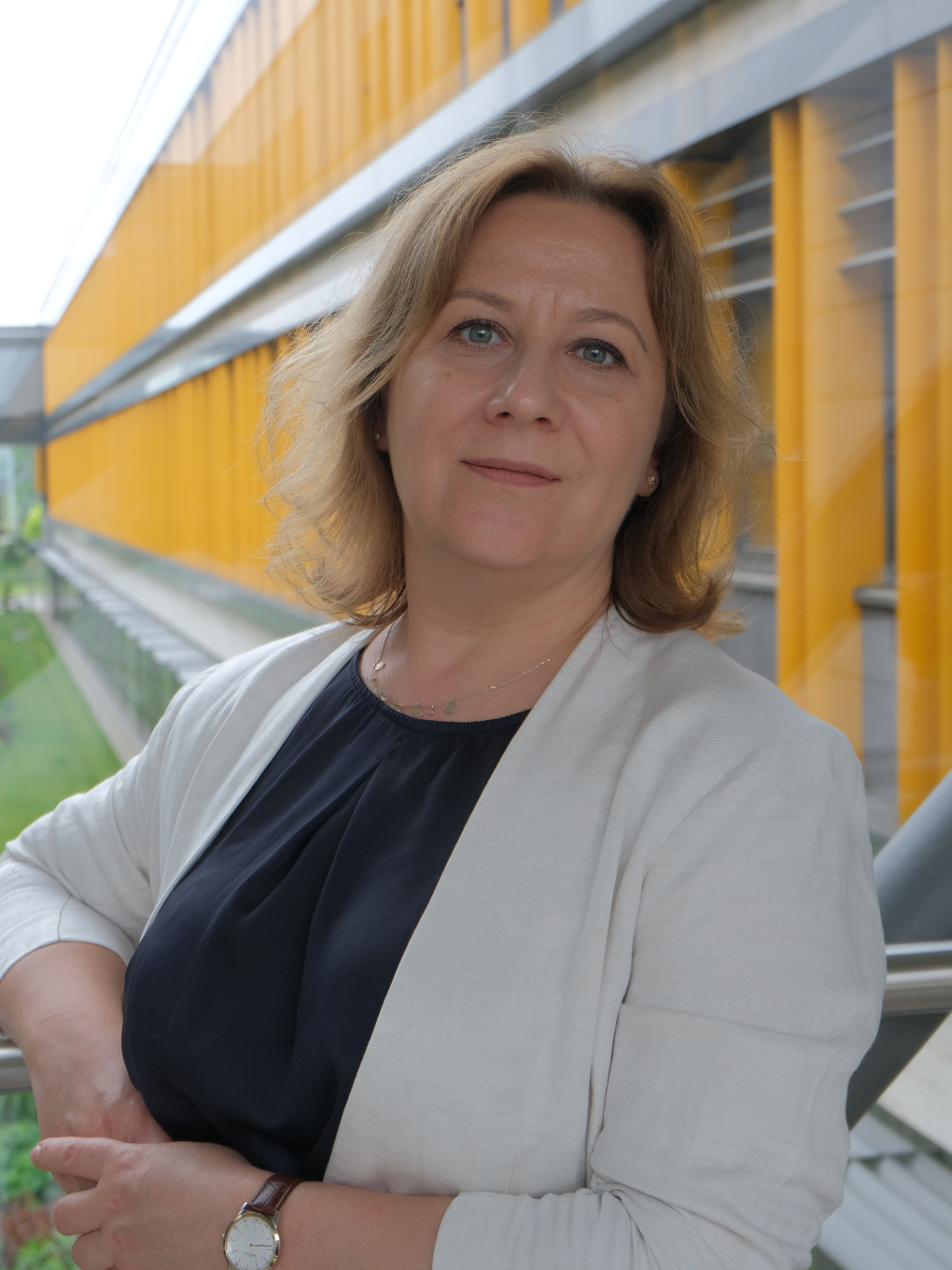 Kamilla's research interests began with modeling the absorption properties of molecular crystals at the Department of Theoretical Chemistry. She has been continuing research on the border of "theory and experience" in vibrational spectroscopy since doctoral studies, with particular emphasis on the coordination relationships of bioligands. She defended her PhD in chemistry in 2003 with the work "Application of molecular spectroscopy methods to determine the structures of oximes and their complex compounds with Ni (II) and Cu (II) ions". The ongoing research projects concern the interaction of molecules of bio / medical importance with the Ag and Au (SERS) surface as well as Raman mapping and IR imaging of biological material and wall painting.
Kamilla's research interests began with modeling the absorption properties of molecular crystals at the Department of Theoretical Chemistry. She has been continuing research on the border of "theory and experience" in vibrational spectroscopy since doctoral studies, with particular emphasis on the coordination relationships of bioligands. She defended her PhD in chemistry in 2003 with the work "Application of molecular spectroscopy methods to determine the structures of oximes and their complex compounds with Ni (II) and Cu (II) ions". The ongoing research projects concern the interaction of molecules of bio / medical importance with the Ag and Au (SERS) surface as well as Raman mapping and IR imaging of biological material and wall painting.
 Kasia’s research focuses on the biomedical application of molecular spectroscopy, especially in using Raman and fluorescence microscopy to monitor molecular changes occurring in single cells in response to disease development or pharmacological stimulation. Since 2009, she has been scientifically associated with Raman Imaging Group, first as a student and now as an assistant professor. In 2015, she obtained her Ph.D. in chemistry with honors with a work focused on applying vibrational spectroscopy in endothelial pharmacology. In 2018, the Ministry of Education and Science awarded Kasia a scholarship for outstanding young scientists. She was a PI of several scientific projects. In numerous papers, she has shown that single-cell Raman imaging supported by fluorescence and chemometrics allows for tracking many biochemical processes and monitoring cell-drug interactions at the subcellular level.
Kasia’s research focuses on the biomedical application of molecular spectroscopy, especially in using Raman and fluorescence microscopy to monitor molecular changes occurring in single cells in response to disease development or pharmacological stimulation. Since 2009, she has been scientifically associated with Raman Imaging Group, first as a student and now as an assistant professor. In 2015, she obtained her Ph.D. in chemistry with honors with a work focused on applying vibrational spectroscopy in endothelial pharmacology. In 2018, the Ministry of Education and Science awarded Kasia a scholarship for outstanding young scientists. She was a PI of several scientific projects. In numerous papers, she has shown that single-cell Raman imaging supported by fluorescence and chemometrics allows for tracking many biochemical processes and monitoring cell-drug interactions at the subcellular level.
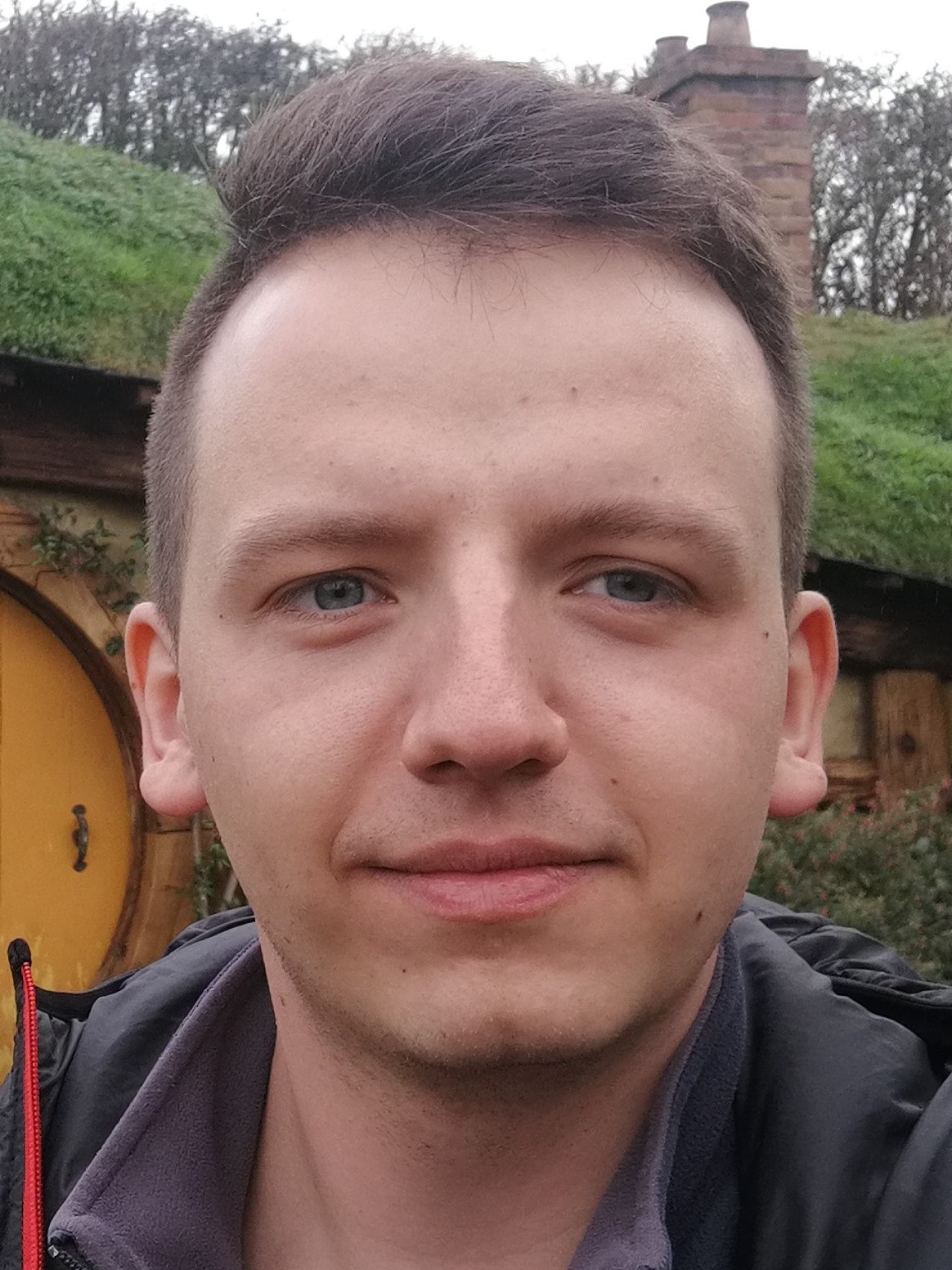 Grzegorz received his MSc degree in chemistry in 2014 and PhD degree in 2018 (both with the award of distinction), from the Faculty of Chemistry, Jagiellonian University in Krakow, under the guidance of Prof. Malgorzata Baranska. In his PhD dissertation he developed new methods of ROA signal induction and enhancement, e.g. AIRROA (Aggregation-Induced Resonance Raman Optical Activity). During his postdoctoral fellowship he collaborated with Prof. Petr Bouř from the Institute of Organic Chemistry and Biochemistry, Prague, Czech Republic. Currently he is a researcher in the Jagiellonian Centre for Experimental Therapeutics (JCET), Jagiellonian University, where he is a principal investigator of the NCN OPUS grant. His research focuses on computational and spectroscopic studies of biomolecular systems, by means of chiroptical methods: ROA, ECD, VCD, as well as development of resonance enhancement methods in ROA.
Grzegorz received his MSc degree in chemistry in 2014 and PhD degree in 2018 (both with the award of distinction), from the Faculty of Chemistry, Jagiellonian University in Krakow, under the guidance of Prof. Malgorzata Baranska. In his PhD dissertation he developed new methods of ROA signal induction and enhancement, e.g. AIRROA (Aggregation-Induced Resonance Raman Optical Activity). During his postdoctoral fellowship he collaborated with Prof. Petr Bouř from the Institute of Organic Chemistry and Biochemistry, Prague, Czech Republic. Currently he is a researcher in the Jagiellonian Centre for Experimental Therapeutics (JCET), Jagiellonian University, where he is a principal investigator of the NCN OPUS grant. His research focuses on computational and spectroscopic studies of biomolecular systems, by means of chiroptical methods: ROA, ECD, VCD, as well as development of resonance enhancement methods in ROA.
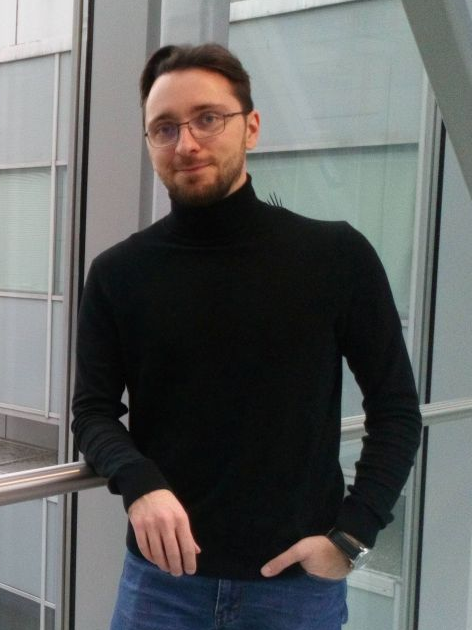 Jakub obtained his Ph.D. in Chemistry with honors in 2019 at the Faculty of Chemistry of Jagiellonian University. Since 2013, he has been scientifically associated with the Jagiellonian Centre for Experimental Therapeutics (JCET), where he currently serves as Head of the Laboratory of Raman Spectroscopy. In his research, he is focused on the use of Raman spectroscopy and resonance Raman spectroscopy to detect pathological alterations of red blood cells and to better understand the molecular structure of hemoglobin adducts. Between 03-09.2019, he was visiting researcher at the University of Saint Louis in the United States, broadening his knowledge in resonance Raman spectroscopy. He was the principal investigator of two projects awarded by the National Science Center in Poland (Preludium 12 and Etiuda 5), and was a laureate of the START 2022 program of the Foundation for Polish Science. Currently, he leads the OPUS21 Project entitled “In search of the unexplored aspects of ferric heme protein-dependent regulation of nitric oxide signalling in the erythrocyte and vessel wall”.
Jakub obtained his Ph.D. in Chemistry with honors in 2019 at the Faculty of Chemistry of Jagiellonian University. Since 2013, he has been scientifically associated with the Jagiellonian Centre for Experimental Therapeutics (JCET), where he currently serves as Head of the Laboratory of Raman Spectroscopy. In his research, he is focused on the use of Raman spectroscopy and resonance Raman spectroscopy to detect pathological alterations of red blood cells and to better understand the molecular structure of hemoglobin adducts. Between 03-09.2019, he was visiting researcher at the University of Saint Louis in the United States, broadening his knowledge in resonance Raman spectroscopy. He was the principal investigator of two projects awarded by the National Science Center in Poland (Preludium 12 and Etiuda 5), and was a laureate of the START 2022 program of the Foundation for Polish Science. Currently, he leads the OPUS21 Project entitled “In search of the unexplored aspects of ferric heme protein-dependent regulation of nitric oxide signalling in the erythrocyte and vessel wall”.
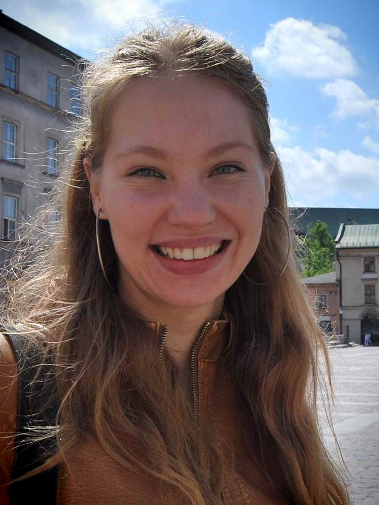 Ania obtained her master's degree in 2014 at the Faculty of Biochemistry, Biophysics and Biotechnology of the Jagiellonian University. In 2017, she also obtained a bachelor's degree at the Faculty of Physics, Astronomy and Applied Computer Science at the Jagiellonian University. In 2019, Ania defended her doctoral dissertation with honors entitled "Study of the influence of ionizing radiation on the structure of chromatin using molecular nanospectroscopy" at the Institute of Nuclear Physics of the Polish Academy of Sciences Henryk Niewodniczański. As part of her doctoral dissertation, Ania studied chromatin using AFM-IR and TERS nanospectroscopy. Currently, Ania conducts research as part of the Team-Net project awarded by the Foundation for Polish Science entitled "Platform for fast, marker-free imaging, identification and sorting of leukemia cell subtypes."
Ania obtained her master's degree in 2014 at the Faculty of Biochemistry, Biophysics and Biotechnology of the Jagiellonian University. In 2017, she also obtained a bachelor's degree at the Faculty of Physics, Astronomy and Applied Computer Science at the Jagiellonian University. In 2019, Ania defended her doctoral dissertation with honors entitled "Study of the influence of ionizing radiation on the structure of chromatin using molecular nanospectroscopy" at the Institute of Nuclear Physics of the Polish Academy of Sciences Henryk Niewodniczański. As part of her doctoral dissertation, Ania studied chromatin using AFM-IR and TERS nanospectroscopy. Currently, Ania conducts research as part of the Team-Net project awarded by the Foundation for Polish Science entitled "Platform for fast, marker-free imaging, identification and sorting of leukemia cell subtypes."
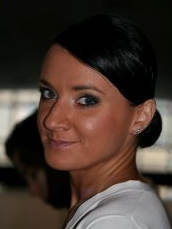 Sylwia is a graduate of Biophysics of the Faculty of Biochemistry, Biophysics and Biotechnology at the Jagiellonian University. In 2018, she defended her doctoral dissertation entitled “Physicochemical characterization of the mineralization of collagen structures” at the Faculty of Physics, Astronomy and Applied Computer Science at the Jagiellonian University. As part of her doctoral dissertation, Sylwia studied the pathological calcification of soft tissues using FTIR spectroscopy and computed microtomography, she proposed the software to artifacts correction in microtomography, and she developed a mathematical model of mineralization growth in tissues. In cooperation with Polytechnic of Białystok, she was concerned in the research on gas sensing and molecular mechanisms of graphene sensors detection. She was also involved in works on Boron Neutron Capture Therapy development in Poland. In 2019, she received the Rector's award for outstanding scientific achievements. In 2021, she joined to the Team-Net project awarded by the Foundation for Polish Science, focusing on the use of Raman spectroscopy and chemometry methods in the analyze of leukemia cells subtypes.
Sylwia is a graduate of Biophysics of the Faculty of Biochemistry, Biophysics and Biotechnology at the Jagiellonian University. In 2018, she defended her doctoral dissertation entitled “Physicochemical characterization of the mineralization of collagen structures” at the Faculty of Physics, Astronomy and Applied Computer Science at the Jagiellonian University. As part of her doctoral dissertation, Sylwia studied the pathological calcification of soft tissues using FTIR spectroscopy and computed microtomography, she proposed the software to artifacts correction in microtomography, and she developed a mathematical model of mineralization growth in tissues. In cooperation with Polytechnic of Białystok, she was concerned in the research on gas sensing and molecular mechanisms of graphene sensors detection. She was also involved in works on Boron Neutron Capture Therapy development in Poland. In 2019, she received the Rector's award for outstanding scientific achievements. In 2021, she joined to the Team-Net project awarded by the Foundation for Polish Science, focusing on the use of Raman spectroscopy and chemometry methods in the analyze of leukemia cells subtypes.
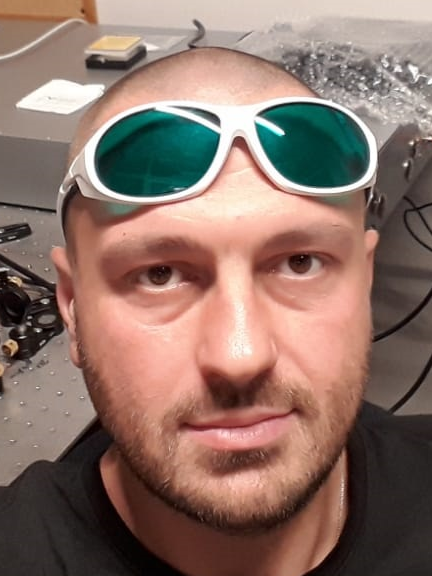 Krzysztof completed his master's thesis and doctorate at the Faculty of Physics of the Jagiellonian University under the patronage of prof. W. Gawlik. He joined our team by vocation as a builder of functional research equipment for sciences related to physics based on the latest technologies. Currently, he is involved in the development of spectroscopic techniques and microscopy in our group, including undertook work on the construction of the SRS microscopy system and the development of applied Raman imaging techniques for medical purposes.
Krzysztof completed his master's thesis and doctorate at the Faculty of Physics of the Jagiellonian University under the patronage of prof. W. Gawlik. He joined our team by vocation as a builder of functional research equipment for sciences related to physics based on the latest technologies. Currently, he is involved in the development of spectroscopic techniques and microscopy in our group, including undertook work on the construction of the SRS microscopy system and the development of applied Raman imaging techniques for medical purposes.
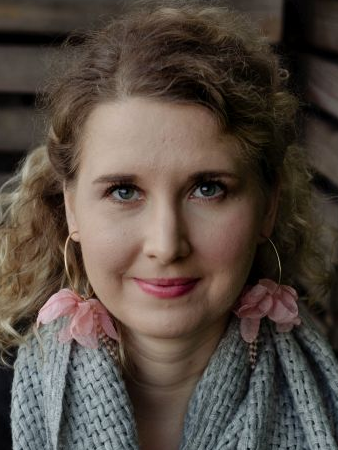 Ewa received her MSc degree in 2017 and PhD degree (with honors) in 2021 from the Faculty of Chemistry UJ under the supervision of prof. Malgorzata Baranska. In her PhD thesis she focused on expand knowledge about enhanced Raman optical activity methods such as resonance Raman optical activity (RROA) and pre-resonance Raman optical activity induced by aggregation process (pre-AIROA). Presently, she is a researcher at the Jagiellonian Centre for Experimental Therapeutics (JCET), where she is a Principal Investigator of the NCN PRELUDIUM 17 grant entitled “Studies on biologically relevant systems in conditions of resonance Raman optical activity”, and post-doc researcher in group headed by prof. Jan Cz. Dobrowolski within the NCN OPUS 20 project entitled “Chiral naphthalenediimides: from synthesis to applications”. Ewa in her research use chiroptical spectroscopic methods, e.g., ECD, ROA, VCD and more standard techniques which provide unusual insights into studied optical properties of molecular systems. Her research is based on biologically important molecules, chiral metal-containing systems etc., and phenomena related to chirality.
Ewa received her MSc degree in 2017 and PhD degree (with honors) in 2021 from the Faculty of Chemistry UJ under the supervision of prof. Malgorzata Baranska. In her PhD thesis she focused on expand knowledge about enhanced Raman optical activity methods such as resonance Raman optical activity (RROA) and pre-resonance Raman optical activity induced by aggregation process (pre-AIROA). Presently, she is a researcher at the Jagiellonian Centre for Experimental Therapeutics (JCET), where she is a Principal Investigator of the NCN PRELUDIUM 17 grant entitled “Studies on biologically relevant systems in conditions of resonance Raman optical activity”, and post-doc researcher in group headed by prof. Jan Cz. Dobrowolski within the NCN OPUS 20 project entitled “Chiral naphthalenediimides: from synthesis to applications”. Ewa in her research use chiroptical spectroscopic methods, e.g., ECD, ROA, VCD and more standard techniques which provide unusual insights into studied optical properties of molecular systems. Her research is based on biologically important molecules, chiral metal-containing systems etc., and phenomena related to chirality.
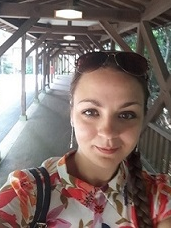 Ola obtained her master's degree in 2018 at the Faculty of Chemistry of Jagiellonian University. In 2022, she defended her doctoral dissertation at the Faculty of Chemistry under the supervision of Prof Baranska and co-supervision of PhD Katarzyna Majzner. In her work, Ola used several spectroscopic methods including Coherent Anti-Stokes Raman Scattering (CARS) and Stimulated Raman Scattering (SRS) to study the influence of exogenous substances on the biochemical changes in leukocytes. Ola also use several chemometric methods to analyse the data to interpret the large sets of spectra collected, including k-means Cluster Analysis (KMCA), Principal Component Analysis (PCA), Partial Least Square (PLS), and Analysis of Variance (ANOVA).
Ola obtained her master's degree in 2018 at the Faculty of Chemistry of Jagiellonian University. In 2022, she defended her doctoral dissertation at the Faculty of Chemistry under the supervision of Prof Baranska and co-supervision of PhD Katarzyna Majzner. In her work, Ola used several spectroscopic methods including Coherent Anti-Stokes Raman Scattering (CARS) and Stimulated Raman Scattering (SRS) to study the influence of exogenous substances on the biochemical changes in leukocytes. Ola also use several chemometric methods to analyse the data to interpret the large sets of spectra collected, including k-means Cluster Analysis (KMCA), Principal Component Analysis (PCA), Partial Least Square (PLS), and Analysis of Variance (ANOVA).
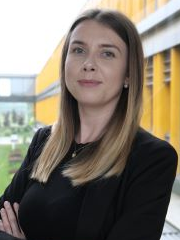 Ada obtained her master's degree in 2015 at the Faculty of Chemistry of the Jagiellonian University. She completed her master's thesis at the Department of Analytical Chemistry. She joined our team (by no means) by accident in February 2016. Currently, she deals with administrative matters and helps with scientific work. In March 2017, Ada defended her engineering degree at the Krakow University of Technology. The subject of her work was "Hierarchical and non-hierarchical methods of Raman spectra analysis of hepatocytes", which she carried out in our team under the supervision of Małgosia.
Ada obtained her master's degree in 2015 at the Faculty of Chemistry of the Jagiellonian University. She completed her master's thesis at the Department of Analytical Chemistry. She joined our team (by no means) by accident in February 2016. Currently, she deals with administrative matters and helps with scientific work. In March 2017, Ada defended her engineering degree at the Krakow University of Technology. The subject of her work was "Hierarchical and non-hierarchical methods of Raman spectra analysis of hepatocytes", which she carried out in our team under the supervision of Małgosia.
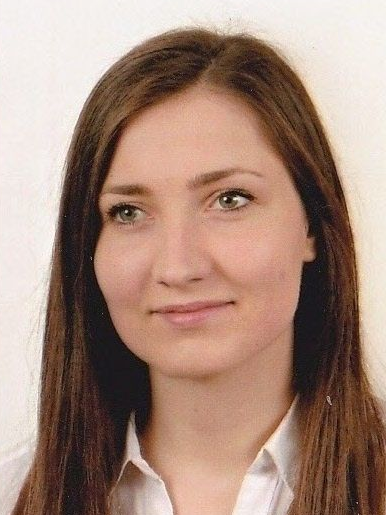
Anna obtained her bachelor’s degree in chemical technology (2013) and master’s degree in materials science (2015) at AGH University of Science and Technology. Her master's thesis on osteogenic differentiation of stem cells was completed at Max Bergmann Center of Biomaterials, Technische Universitat Dresden. In 2021, Anna defended with honors doctoral dissertation on influence of morphine on energy metabolism pathways and obtained Ph.D. in chemistry. Since 2012, she has been scientifically associated with the Department of Biochemistry and Neurobiology (AGH) – her research focused on molecular neuroscience and biochemistry of addiction, as well as mass spectrometry and proteomics. During her postdoctoral fellowship at the University of Campania, Anna studied the structure-to-function relationship of macromolecules and broadened her knowledge of molecular biotechnology and NMR spectroscopy. Currently, she is a post-doc researcher in the Raman Imaging Group and conducts research as part of the NCN OPUS 21 project of Prof. Kamilla Małek entitled Blood-brain barrier: A 3D cell model and its functionality assessed by a multimodal molecular platform.
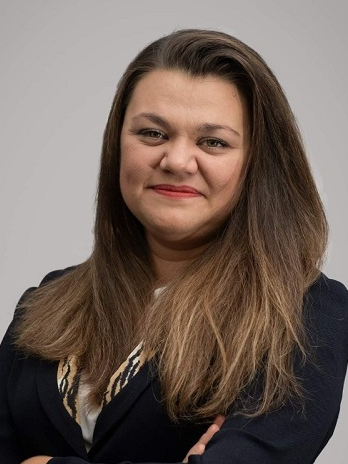 Basia is a postdoctoral researcher at the Raman Imaging Group at the Department of Chemical Physics in Jagiellonian University. She is working under the Maestro project, where she studies the metabolic pathways of living cells using Raman Spectroscopy. Previously, she conducted research on actin cytoskeleton in living human skin cells using Atomic Force Microscopy at IFJ PAN, where she also obtained the PhD with a thesis entitled: "Nanomechanics in skin cells interactions".
Basia is a postdoctoral researcher at the Raman Imaging Group at the Department of Chemical Physics in Jagiellonian University. She is working under the Maestro project, where she studies the metabolic pathways of living cells using Raman Spectroscopy. Previously, she conducted research on actin cytoskeleton in living human skin cells using Atomic Force Microscopy at IFJ PAN, where she also obtained the PhD with a thesis entitled: "Nanomechanics in skin cells interactions". 